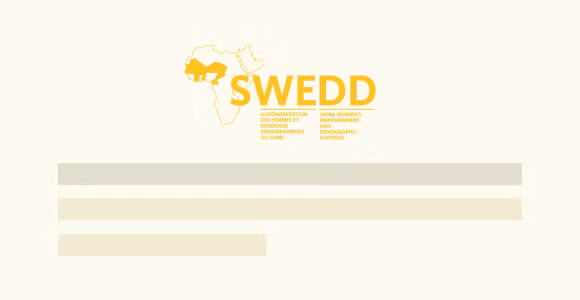

NEWS
SWEDD Best Practice Guides to improve women's empowerment
15 April 2024

In a flagship initiative aimed at improving the socio-economic status and health of women across West Africa, a series of 13 comprehensive best practice guides have been launched. Developed by the SWEDD programme in collaboration with project countries, the World Bank and UNFPA, these guides encapsulate the collective wisdom of projects implemented on the ground to empower women.
The Sahel Women's Empowerment and Demographic Dividend (SWEDD) programme, a regional initiative supported by the World Bank, aims to address the challenges faced by women and adolescent girls in the Sahel region. Through targeted interventions in health, education and economic empowerment, SWEDD seeks to unlock the potential of women and girls as catalysts for development.
The newly released guides serve as a roadmap for stakeholders involved in implementing projects aimed at improving the lives of women. Drawing on successful initiatives in SWEDD countries such as Burkina Faso, Chad, Mali, Mauritania and Niger, these guides offer practical insights and actionable strategies.
From innovative approaches to maternal health care to community-led initiatives promoting women's economic empowerment, the guides showcase a diverse range of good practices that have delivered tangible results on the ground. They highlight the importance of tailoring interventions to the specific needs and challenges of women in different contexts.
Stakeholders across the region will be able to delve into these guides and join the efforts being made towards gender equality and women's empowerment in Sub-saharan Africa.
Discover the Guides by clicking here
1. The engagement of religious and traditional leaders
2. Support for the enrolment of girls and keeping them in school
3. Curriculum development for safe spaces
4. Safe spaces
5. Development of husbands' clubs and future husbands' clubs
6. The role of group leaders in safe spaces and husbands'/future husbands' clubs
7. Increasing economic opportunities for adolescent girls and young women
8. Technical support for national drug quality control laboratories and national drug regulatory authorities
9. Community-based distribution (CBD) in improving RMNCH indicators at the last Kilometre
10. Clinical mentoring of midwives to reduce maternal deaths and improve reproductive health
11. Regional centres of excellence to improve the quality of reproductive, maternal, neonatal, child and adolescent health services (SRMNIA)
12. Training and deployment of midwives in rural areas
13. Experience in applying sensitive budgeting for the demographic dividend (BSDD)
